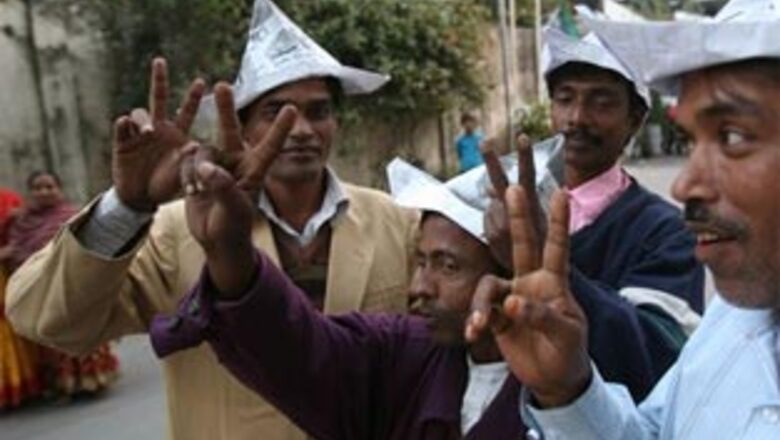
views
Dhaka: Bangladeshis on Monday voted in a largely peaceful election many rated more honest and fraud-free than those in the past, but it remained to be seen if the losers would accept the results.
The vote was a return to democracy for the South Asian country after two years of emergency rule imposed by an army-backed government.
It took over in January 2007 amid widespread street violence between supporters of rival parties and cancelled a poll due that month.
"The election ended in a very peaceful environment and I never saw such a congenial atmosphere. The turnout was tremendous," Taleya Rehman, executive director of monitoring group Democracywatch, said.
Bangladesh's neighbours worry an increasingly violent Islamist militant minority in the nation of more than 140 million people, most of them moderate Muslims, could provide support and shelter for radical activists in their own countries.
The leading election candidates pledged strong action to crack down on violent extremists, and made populist promises to contain prices and promote growth in a country where 45 per cent of the people are below the poverty line.
An alliance led by former Prime Minister Sheikh Hasina of the Awami League had the edge in the vote for 300 Parliament seats, most observers said.
Others predicted neither she nor rival and fellow ex-PM Begum Khaleda Zia would win an outright majority in a country where parties are based more on personality than rigid ideologies.
Significant results are not expected before early Tuesday.
"We have waited so long ... but (are) feeling good the election is held at last," Hasina said after casting her vote."
Khaleda, leader of the Bangladesh Nationalist Party (BNP), said: "If the election is free and fair, Inshallah (God willing) we will win and form the next government."
In Dhaka, cheerful voters waited up to an hour in line to cast ballots, while others who were finished stayed on the streets to chat. Men and women, many of the latter in brightly coloured saris and head scarves, voted at separate sites.
"This time the mood is different," Mariam Faruqui said as she waited in the voting line.
"Other times there were very (many) illegal votes" and some people were scared to support the candidates they really wanted, the 50-year-old gynaecologist said.
Past polls were often marked by fraud and intimidation, and party supporters took to the streets for protests, strikes and confrontations ahead and after elections.
This time the government deployed 50,000 troops, 75,000 police and 6,000 members of its elite Rapid Action Battalion along with other auxiliary forces for security.
Peaceful voters
Voters across the country streamed to polling booths.
"People are coming to cast their ballots spontaneously. I had no problem at all," said Shilpi Das, 35, as she emerged from voting in northeastern Sylhet city.
About 200,000 local and 2,000 foreign monitors were at the election centres to check procedures. "Polling officials were trained in their jobs and voters were enthusiastic. They lined up very early," Damaso Magpaul, chief of the Asian Network for Free Elections, said.
"There have been (reports of) some minor problems, but those were mainly for techical reasons, not intentional or for bias."
A glitch for some that caused a small protest in Dhaka was a disparity between ID numbers on picture cards and voting lists.
And not everyone thought the monitors helped.
"There are too many observers. Some of them are biased," said Abdullah Al-Noman, a former minister and a BNP candidate in the port city of Chittagong.
Such comments, and Khaleda implying that if she lost the vote would be unfair, could set the stage for post-election unrest.
That could get in the way of a new government tackling such challenges as reducing corruption and improving the economy, and prompt the military to step in as it has before to restore order.
Indeed, a remark by Army chief General Moeen U Ahmed that the military would "provide support to the elected government as much as they did for the interim authority" might hint the new leaders should prepare to have someone looking over their shoulders.
Ex-PMs Hasina and Khaleda alternated in power for 15 years through to 2006.
Critics say they barely dented Bangladesh's problems, in a large measure because of protests, strikes and street violence linked to their parties when out of office.
Some voters expected Hasina and Khaleda to avoid such tactics after this vote, and try to follow through on promises. But rickshaw mechanic Mohammad Mudasser had doubts.
"I don't think this vote will give us anything new ... They forget their pledges after the election," he said.




















Comments
0 comment